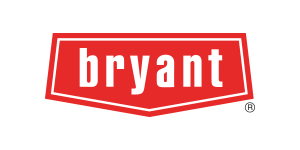FAQs
Hilliard Heating & Cooling, Inc.
Have a heating or cooling-related question? We have the answer. Check out these FAQs and give us a call today for more information!
-
What does HVAC stand for?
HVAC stands for Heating, Ventilation, and Air Conditioning. They are the systems used to regulate indoor climate and air quality. When you need heating and air conditioning repairs, call Hilliard Heating & Cooling, Inc.
-
How often should I service my HVAC system?
According to Forbes, you should have your HVAC system serviced at least once per year. We typically recommend scheduling heating or AC repairs before the peak heating or cooling seasons.
-
What are the benefits of regular HVAC maintenance?
Regular maintenance can improve energy efficiency, extend the lifespan of the system, reduce the likelihood of breakdowns, and improve indoor air quality. When you need heating and air conditioning repairs, give our team a call.
-
How can I improve my HVAC system's efficiency?
You can improve the efficiency of your heating and air conditioning in a few steps. We recommend regularly replacing filters, sealing ducts, using a programmable thermostat, and ensuring your home is well-insulated.
-
When should I replace my HVAC system?
According to CNET, most heating and air conditioning systems have a lifespan of 10-15 years. If your system is within this range, frequently needs repairs, or isn't performing efficiently, it might be time to consider a replacement.
-
What size HVAC system do I need for my home?
The size of the heating and air conditioning system you need depends on various factors. This includes the size of your home, the climate, insulation, and windows. A professional load calculation can determine the right size for your home.
-
What is a SEER rating?
SEER stands for Seasonal Energy Efficiency Ratio. It measures the efficiency of air conditioners; a higher SEER rating indicates better energy efficiency. A lower SEER rating may indicate that you're due for AC repairs or replacement.
-
Why is my HVAC system making unusual noises?
Unusual noises can indicate various issues, such as loose parts, a failing motor, or airflow problems. It's best to have a professional inspect the system to diagnose and fix the issue. During the inspection, an expert can determine if you're due for heating or air conditioner repairs.
-
What is the difference between a heat pump and an air conditioner?
An air conditioner only cools the air. A heat pump can both heat and cool your home. As heat pumps can function as both heating and air conditioning, they're typically more efficient in moderate climates.
-
How can I improve indoor air quality with my HVAC system?
You can improve indoor air quality by using high-quality air filters, maintaining your HVAC system, incorporating air purifiers, ensuring proper ventilation, and controlling humidity levels. When you have an expert inspect your heating and air conditioning, be sure to inquire about how you could improve your air quality.


Share On: